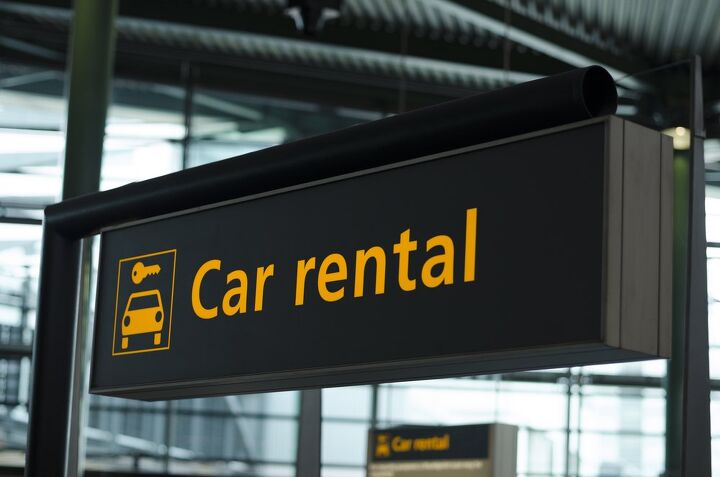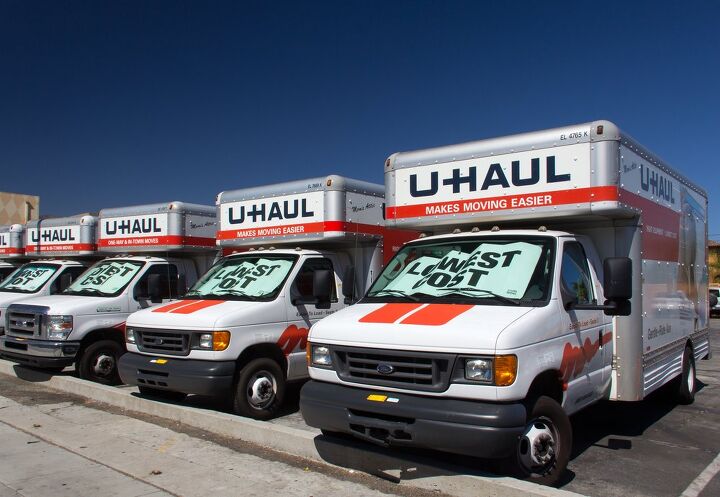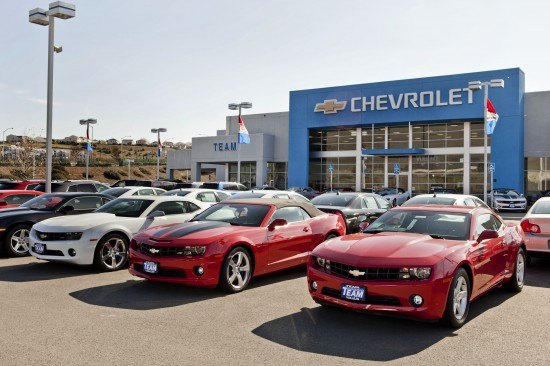#RentalFleets
Good Luck Getting Rental Cars This Summer
As you might have noticed, or heard from us, rental agencies have been hoovering up new and used vehicles to offset the 2020 selloff that stemmed from everyone mysteriously canceling their travel plans that year. Returning to normal, which is something anyone who didn’t assume the world was ending could have predicted, has resulted in increased pricing for vehicles — regardless of whether you’re renting or buying.
Rental companies typically try to play the vehicle market like the rest of use stocks or (if you’re hip) crypto. Buy low, sell high. But 2021 has created a perfect storm of increased demand coming after a long stretch of nothing and an auto industry that doesn’t seem to be capable of building cars thanks to all sorts of component shortages. But it’s no sweat for the big rental agencies because they’re now able to charge just about whatever they want. They’re keeping vehicles in their fleets longer, making more money off them, and selling them back at elevated prices.
Rental Car Demand Pushes Hawaiian Tourists Toward U-Haul
With car rentals crippled through 2020 as society collectively stopped traveling in response to the pandemic, businesses entered 2021 with the perfect excuse to charge exorbitant fees to lend out some of the cheapest vehicles on the market. Cities have it particularly bad as rental firms find themselves with a surplus of locals wanting to escape and not enough vehicles to serve them. Daily rates now surpass three figures in metropolitan areas and can balloon by hundreds more if a customer wants to return the vehicle out of state (depending on the agency).
However, Hawaii is where things start to get really weird. The islands are reportedly in such short supply of rental cars that tourists are borrowing U-Hauls, where the biggest concerns of mileage and finding a parking space pale in comparison to the upfront cost of something more typical of vacationing families.
Day-rate Disruptors: Rental Agencies Sure Seem Excited About Mobility
Car rentals have evolved rather dramatically in the new millennium. While you can still reserve over the phone before walking into an office to pick up the manager’s special for the agreed upon timeframe, alternatives are many. ZipCar transformed how some people get around an urban environment by allowing customers access to an array of automobiles at hourly rates. Seeing its potential, Avis acquired the company in 2013, expanding its function to include a less stringent return policy via ZipCar Flex.
Meanwhile, Enterprise has its own short-term rental services. Recently, the company has been on a kick to purchase as many mobility firms as it can. Hertz, which has been a little slower to dive into mobility culture, does offer alternatives to traditional rentals in specific markets. It also announced a new strategic partnership with the tech firm Aptiv last July to start testing autonomous fleets this fall.
This, of course, is all taking place in an era where carmakers are launching fleets of their own while attempting to rebrand themselves as data and mobility companies. But surely these rental agencies are just hedging their bets and trying to adopt new tech to better serve their customers. They’re not about to adopt the same tired rhetoric, are they?
FCA to Dealers: Better Stock Up on Grand Caravans Now
Chrysler’s minivans have been a never-ending beacon of purity and goodness for over thirty years. Less so lately, but the segment remains an important part of the FCA lineup. Intended to replace both the Chrysler and Dodge minivans, the Pacifica did not outsell either at launch. While Pacifica deliveries eventually eclipsed the Town & Country, it was really only due to the venerable model’s extermination. Meanwhile, Dodge’s Grand Caravan continues as the stronger seller and remains a popular option for rental fleets.
This has convinced Fiat Chrysler to extended the Caravan’s death date more than once, but it won’t last forever. In fact, it’s about to suffer a sort of prelude to non-existence as production will go on an extended hiatus in mid-August and won’t resume until December, when the 2018 models appear.
In With the Good Sales, Out With the Bad: GM Plans to Further Shrink Fleet Sales
General Motors has decided to further shrink its outgoing fleet of rental vehicles to prioritize its in-house vehicle lending service, Maven, and focus on getting newer cars to customers. That does mean building fewer vehicles overall, but GM shouldn’t care if it can keep raking in the profits — something rental fleets aren’t particularly good at in lower volumes, unless you’re the one charging a daily rate.
Alan Batey, president of GM’s North American operations, claims sales to rental fleets should drop by about 50,000 units this year and an undisclosed amount in 2018. It follows the company’s trend to scale back fleet sales in general. Big businesses accounted for 16.1 percent of its total U.S. sales in 2014, but that was reduced to 11.7 percent in 2016.
GM Dealers Deal With Part Backlog, CEO Asked To Back Rental Car Bill
Automotive News reports the repairs of some 2.6 million vehicles affected by the 2014 General Motors ignition switch recall will be delayed by one week as the needed part slowly enters into the automaker’s dealership network. Though most dealers thought they would be receiving the part Monday, GM spokesman Kevin Kelly insisted the part was set to arrive sometime during “the week of April 7”:
We plan to send letters this week informing affected customers that parts are arriving at dealerships and to schedule a service appointment with their dealer. Repairs are likely to begin to follow soon after the customer letter mailing.
Until then, dealerships may face service backlogs, especially with affected vehicles already on the lot that cannot be sold until they are repaired, which can only happen once customer vehicles go through the 30-minute swap. On the other hand, while dealers have noticed some frustration from their customers, the majority of their base was found to be patient with the status of the repair plan.





















Recent Comments